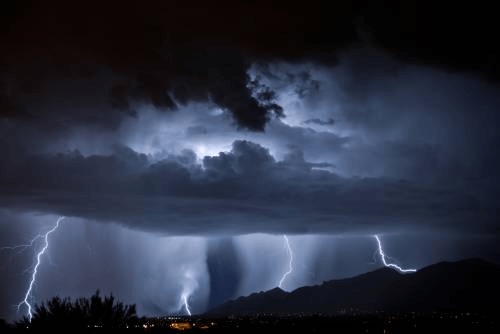
Approximately 3,500 outages were reported in 2015, according to the American Society of Civil Engineers. In Minnesota, most disruptions to the grid were primarily due to human error and adverse weather conditions. These outages can last close to 50 minutes at a time. In this article, we’ll explore ways to prepare in case of power interruptions.
1. Turn Off Your Appliances
To protect appliances during an outage, it may be necessary to unplug them. But that depends on the installation of your electrical system. A standard circuit should have a varistor, a device that varies the electrical resistance of the voltage from the grid.
Without a varistor, there could be voltage spikes that can damage sensitive equipment. Your electrical system may not have such safeguards to keep your appliances safe. Therefore, it is wise to turn off and unplug electronic appliances to avoid equipment faults and residential fires.
Also, switch off the lights and leave only one on so that you’ll know when the power gets back. Leaving your bulbs on can draw a lot of electrical energy when the grid is live again.
A surge protector is another necessary component for shielding your appliances during an outage. It absorbs excess power going through the circuit. It is an inexpensive way to safeguard your refrigerator, computer, and flat-screen TVs.
From the control panel, check if the circuit breaker is off and switch it on. If it turns off immediately, you can consult Liberty Comfort Systems electricians in Anoka. A breaker that is constantly tripping is a sign of electrical faults. To minimize risk for you and your family, arrange an inspection as soon as possible.
2. Get a Power Generator
If you are frequently experiencing outages, you may want to consider getting a generator to power essential appliances. You can keep the fridge running and ensure that your HVAC unit is conditioning temperatures in the interior. A portable generator is more affordable than a standby system. However, most have limited power that can only support a few appliances, and it’s dangerous to run it indoors.
A standby system can power the whole house and support multiple appliances for an extended time. Some standby generators have a convenient switching system that transfers power back to the grid when power returns.
Standby generators are suitable for commercial establishments or for situations where you can’t afford to stay without power. For example, if you are running a business from your home office, a transfer switch can prevent downtimes. A standby generator is also required for those who have medical equipment at home that must stay on at all times. A standby generator is also safer since you don’t have to make connections or turn on the generator.
Determine the power you’ll need by adding up the wattage of the appliances you’ll consume during an outage. The wattage is usually on a label at the back of most electronics. Multiply each of those values by 1.5, and add them up. The 1.5 value accounts for the surge in power uptake when the power is restored.
To be certain of the backup system’s reliability, consult Liberty Comfort Systems technicians for an assessment in Anoka. Our BBB-accredited team can evaluate your circuit and troubleshoot your generator.
3. Have an Emergency Kit Ready
An emergency kit will make it easy to find what you need when there’s no power. You need to organize basic supplies and have them ready in case of an outage.
You can start by setting aside an emergency kit with essential tools and equipment. It is also important to include a first aid kit in case of accidents. Get a flashlight powered by batteries or one that you can wind up by hand. Collect the items in a duffle bag, or improvise a plastic container.
Most outages happen during a storm, heavy rain, or hailstorm, so it is useful to have a battery-powered radio to keep up with weather news in your location. Other items you ought to keep ready include safety gloves, a screwdriver, a hammer, a wrench, and pliers. Don’t forget to include nonperishable food and water.
While you’re building your emergency kit, it might also be a good time to draft an exit strategy in case you need to leave your home. Sometimes, power outages are caused by natural disasters, which means you may have to evacuate. For your safety, stay away from fallen power lines. It is also advisable to keep a phone ready in case of an emergency.
4. Consider Installing a Solar Power System
Another way that you can prepare for an outage is to install a solar power system. Solar is a sound investment that can address your home’s entire heating and cooling requirements. As a renewable form of energy, it can be a viable alternative when there is no power in the grid.
A solar power installation has the flexibility to address varying energy needs. You can install a few panels to support some devices and appliances during an outage. It can also be a whole-house system that can switch to and from the grid automatically.
As a power backup system, solar can be off-grid or tied to the grid. A system tried to the grid is more convenient as it allows for a seamless transfer of power during an outage. Unlike an off-grid system or generator, a grid-tied system supplies electrical energy to the grid.
That means that during an outage, you can power your home. The rest of the time, you’ll be reducing your utility bills by supplying power to the grid.
One of the advantages of a solar system over a generator is its clean and quiet operation. There is little risk of the equipment producing toxic fumes such as carbon dioxide and carbon monoxide. They also require little maintenance and don’t need manual operation when there is a blackout. Since they store energy in batteries, they are always ready when there is no power supply in the grid.
5. Schedule an Inspection of Your Home’s Electrical System
An inspection of your circuit can unearth issues such as outdated wiring, improper connections, and oversize circuit breakers. Your home is more vulnerable during an outage when brownouts and surges can start a fire.
Testing keeps your home safe from dangerous electrical arcs by ensuring the installation complies with building standards. There may be signs that your electrical system needs preparation before an outage. Some of the signs may include lights flickering and a frequently tripping circuit breaker. Our technicians can offer insights into preventive maintenance of your solar or generator. Maintenance tasks may involve adding a coolant to the generator or cleaning the panel. These simple tasks will ensure that the backup system is ready anytime there is an outage.
For a thorough evaluation of your electrical system, you can rely on Liberty Comfort Systems‘s top-rated team in Anoka. Our staff has more than 120 years of combined experience. We install, maintain, and troubleshoot all brands and models of equipment. Whether the issue is with your water heater or electrical circuit, our certified professionals will arrive promptly for the task. To schedule a service with our award-winning electrical team in Anoka, call us today.

